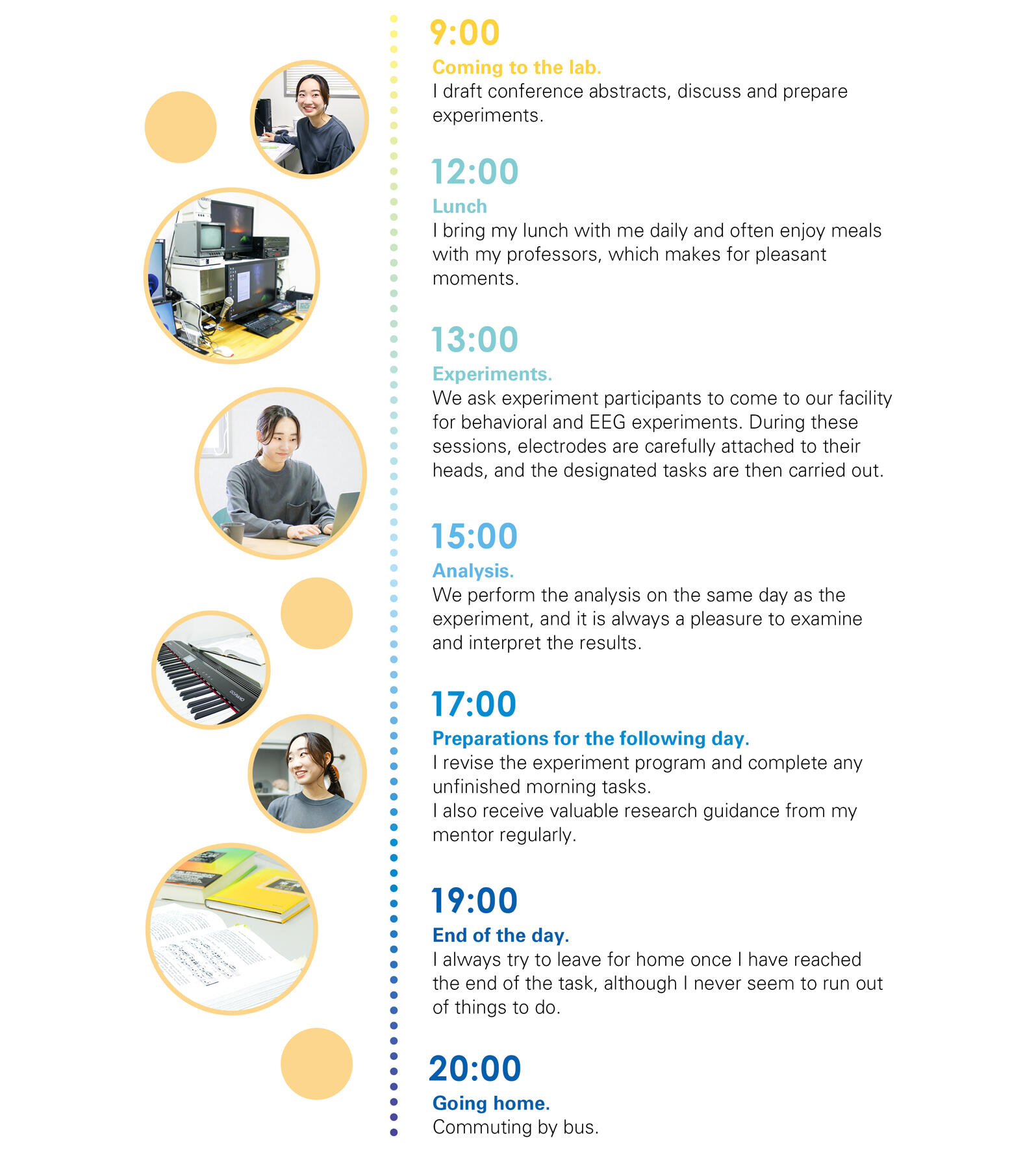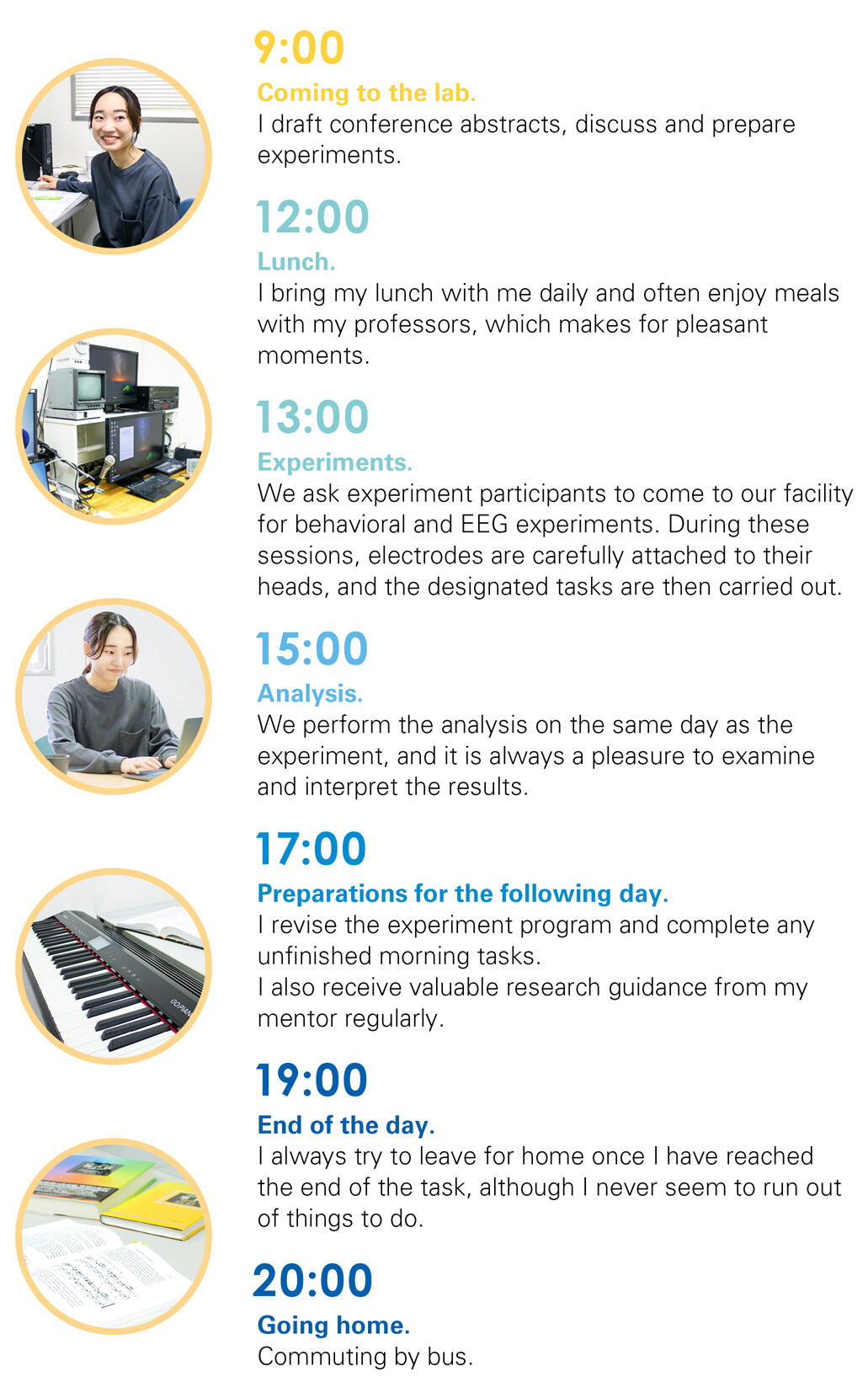
Karen Shibayama
Master in Biomedical Sciences course
Interview
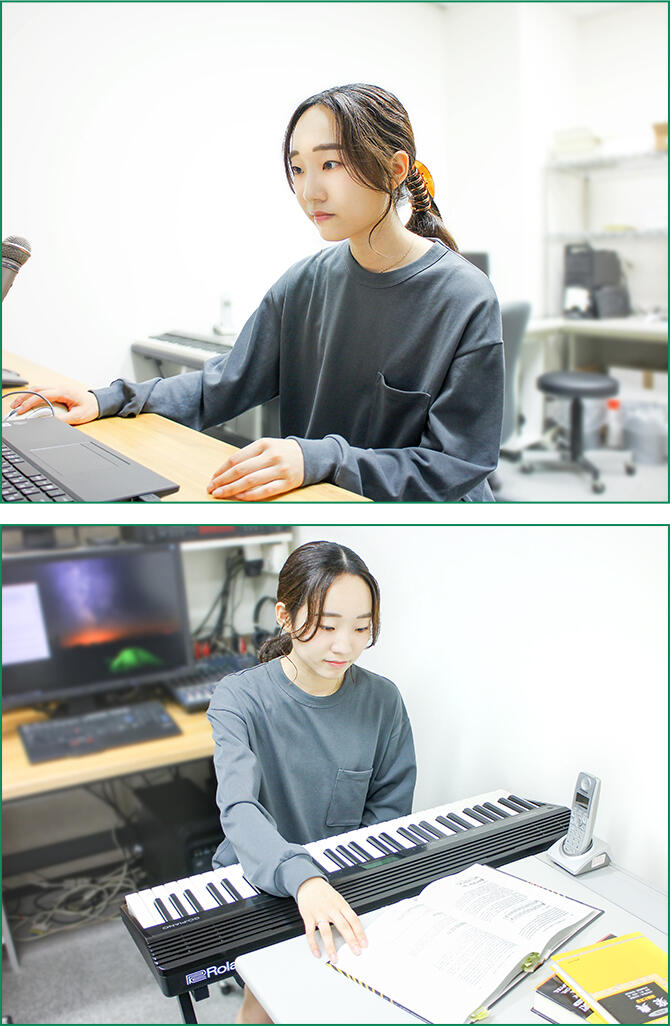
When I developed an interest in exploring the connection between music and the brain and considered pursuing research, I came across a valuable website. Japan has relatively few laboratories studying the relationship between music and the brain. However, within BRI, there are researchers engaged in such studies. Without hesitation, I decided to align my academic journey with theirs. During my third year as an undergraduate, I had the opportunity of visiting the BRI laboratory. What left an enduring impression on me was the comprehensive guidance I received regarding the study's framework and direction. This support was beneficial, especially considering that my intended research path diverged from my previous undergraduate studies. It facilitated a seamless transition into my graduate-level research pursuits. I vividly recall my deep enthusiasm for engaging in academic pursuits within this research institute, even before committing to enroll.
Tell us about the research you are currently working on.
My research primarily revolves around elucidating the neural underpinnings of acquiring relative pitch using functional brain imaging. While there are established assessment and training methods for absolute pitch, relative pitch, to some extent, is cultivated through daily musical activities, yet the specifics remain elusive. Relative pitch holds particular significance in music comprehension, as it forms the foundation of the relational aspects between musical pitches. In our experiments, we administer various behavioral tests, including tasks related to auditory perception, while simultaneously monitoring the participants' brainwave activity. I engage in experiments every day, anticipating the discernible shifts in brain activity that stem from our training sessions.
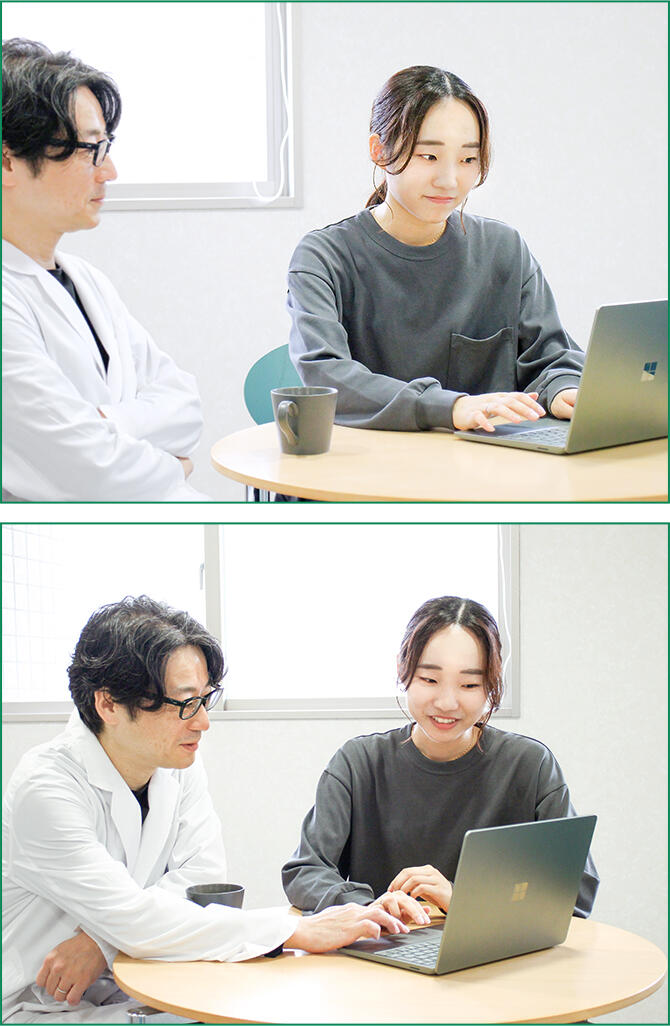
Since my childhood, I have had the privilege of playing a musical instrument and immersing myself in the world of music. Over the years, I've been consistently stirred by music spanning various countries and epochs, including classical compositions, eliciting recurring emotional responses and impressions. My curiosity about the impact of music on the brain eventually eclipsed my aspiration to excel in musical performance, and I began to study the brain.
What are the strengths of doing research at BRI in your opinion?
I believe the unique aspect here is the numerous opportunities for exposure to diverse facets of brain research beyond your own focus. It's uncommon to encounter such a dense concentration of brain-related studies. In the Master's program, you'll find an array of lectures led by BRI professors, providing plentiful chances to explore the most recent advancements and current issues within the field of brain research.
Do you have any plans or challenges you'd like to pursue in the future?
Programming: My goal is to achieve proficiency, enabling me to effectively utilize it in designing and analyzing experiments. English Conversation: I aim to become competent enough to deliver presentations and lead discussions at international conferences. Both of these skill sets are indispensable for a researcher, and I am making efforts to acquire them.
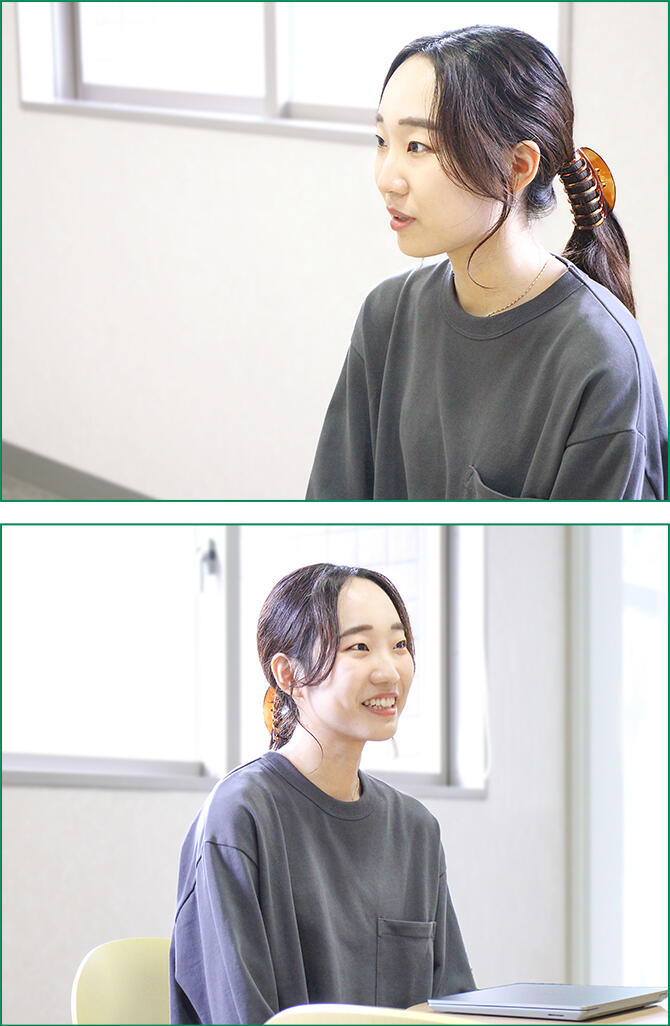
I take pleasure in exploring the offerings of Niigata! On my days off, I visit the local farmer's market or go fruit picking. Niigata offers an plenty of delicious food, and venturing just a bit further from the city center allows you to savor fresh vegetables, which is very appealing. Being originally from outside Niigata Prefecture, this is a weekend experience I cannot enjoy in my hometown. I have a particular fondness for fruits, so it brings me immense joy. The freshness and delightful flavors of these products provide me with the energy I need for my daily research.
What would you like to say to the people who are thinking about graduate programs at BRI?
If you have any interest in conducting brain research, I recommend paying a visit to BRI. Not only do they offer outstanding research facilities, but you'll also witness the researchers' genuine enthusiasm for their research and dedication to teaching. I am confident that this environment will ignite your research motivation. Despite having spent less than half a year in Niigata, I feel fortunate to be surrounded by such supportive individuals, and I'm thrilled to have embarked on my research journey here. I believe that the people you collaborate with are just as crucial as your research focus. I find BRI to be a conducive place for aspiring researchers. As a first step toward your research career, why not consider BRI as an option for your further studies? Additionally, living in Niigata city, where BRI is situated, offers a multitude of attractions. This aspect is noteworthy because it's a place where you might potentially spend several years, if not decades, pursuing your academic endeavors.





